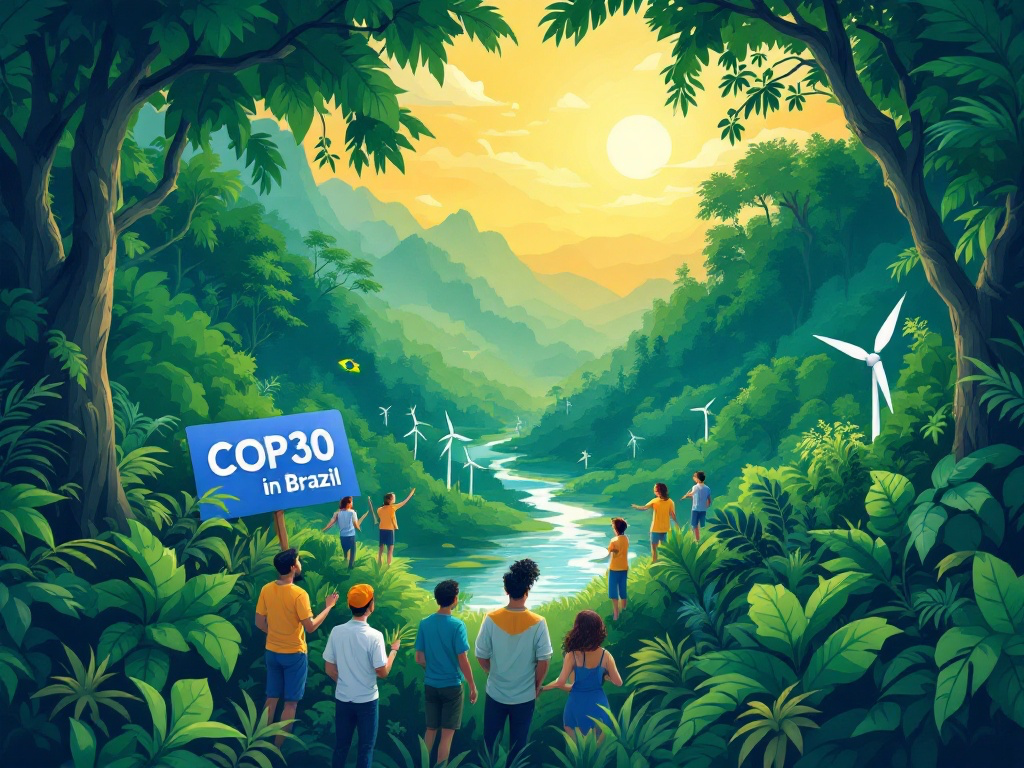Blog
Youth participant’s perspective on child participation at COP

Omar, one of our Young Advisors, reflects on his experience participating online at COP28 and proposes actions to enhance child and youth participation at future summits.
My experience with COP28, which was held in Dubai in 2023, was quite interesting. Although I intended to participate in person, unexpected circumstances prevented my physical attendance. However, I actively engaged with the conference virtually, contributing to the discussions and learning from the sessions.
One session that particularly resonated with me was the Green Education Session, which explored innovative ideas and initiatives aimed at transforming education to address pressing global challenges.
During my virtual participation, I identified several gaps that need to be addressed for more effective and inclusive engagement, particularly for children and youth:
- The first gap is the lack of intergenerational dialogue. There was a noticeable absence of processes that foster negotiations and discussions between children and adult officials. Fresh, innovative, and creative ideas often emerge from younger generations, but opportunities for such exchanges were limited.
- The second was the insufficient mechanisms for child participation. I discovered that children lacked platforms or mechanisms to voice their needs and ideas meaningfully. Such systems are essential to ensure that their perspectives are not overlooked.
- The third gap was the exclusion in decision-making in sense that the conference did not fully embrace inclusivity, leaving many children from diverse backgrounds unable to participate in decisions that impact them. True inclusivity ensures that all children worldwide, regardless of their circumstances, have a voice in global climate discussions.
Inclusivity is a cornerstone of meaningful child participation. When children from diverse backgrounds are involved, their voices enrich decision-making processes, ensuring more comprehensive and equitable solutions to global challenges. To address these gaps, I propose the following actions to enhance child and youth participation at future COPs:
- The first one is to ensure that delegations include children from various regions, socioeconomic backgrounds, and cultures to bring a richer diversity of perspectives;
- The second is to develop and implement mechanisms that empower children to contribute meaningfully to decision-making processes;
- The third action is to create safe and inclusive spaces where children can express themselves freely and propose creative solutions to climate challenges;
- The allocation of resources to support the participation of children from underrepresented regions, ensuring no one is left behind, is a crucial action to take into consideration;
- Finally, it will be a good idea to acknowledge and celebrate children’s contributions to the conference, reinforcing their sense of value and encouraging future participation.
The next COP will take place in Brazil, in the Amazon region. I am hopeful that this conference will see significant advancements in children’s participation. Governments, private sectors, and universities such as University College Cork in Ireland, should take proactive steps to nominate and support children to attend.

